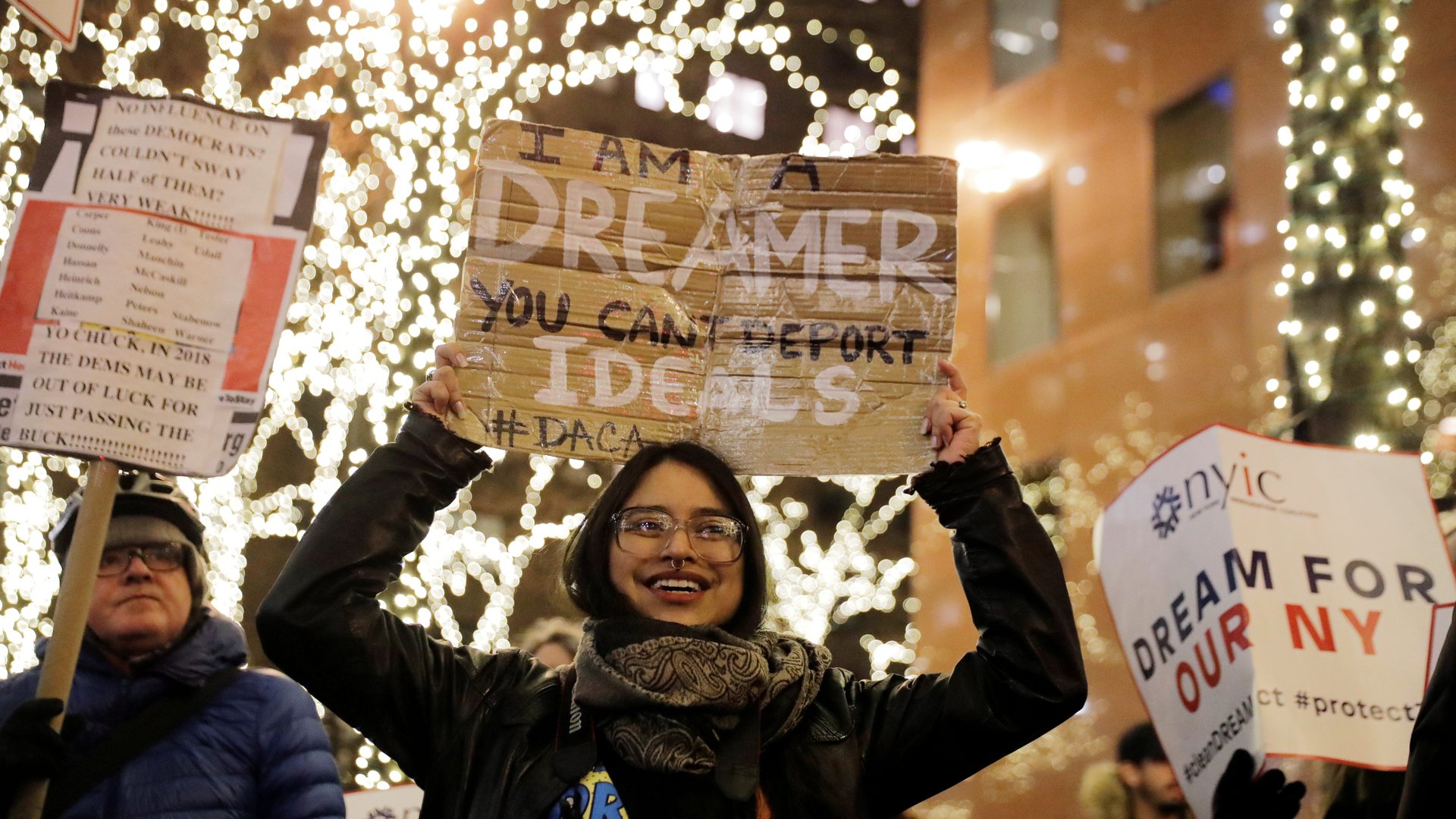Everyone wants DACA. No one wants a government shutdown. Yet here we are
Update (12:15am ET): As of 12:15am eastern time on Saturday, the US Senate has not approved a short-term funding bill and so the US government will shut down.


Update (12:15am ET): As of 12:15am eastern time on Saturday, the US Senate has not approved a short-term funding bill and so the US government will shut down.
Federal agencies across the country will be closed and hundreds of thousands of government employees will stop being paid—mostly due to disagreement over a policy fix the majority of the American public wants.
The Deferred Action for Childhood Arrivals, or DACA, is an Obama-era program that has prevented the deportation of some 700,000 undocumented immigrants who came to the US as children. But since September 2017, when Donald Trump’s administration announced it would be phasing out the program, the future of DACA recipients—often called “Dreamers”—has been in limbo.
Trump has said he wants to do something about the Dreamers, but also that the solution must come from Congress—and he set a March 2018 deadline. Although a federal court in California recently ordered the White House to keep DACA alive, the program’s future is far from certain. A rebuke of that order from a higher court would immediately start the clock for the March deadline again.
Democrats are now saying they won’t support a funding bill that doesn’t grant protections to DACA recipients to ensure they won’t be deported. Most Republicans, however, are unwilling to make any concessions unless they get every item on their anti-immigration wish list, including an $18 billion wall on the US-Mexico border.
Welcome to the great American immigration impasse, 2018 edition. The contentious issue of how to deal with the millions of foreigners living in the US without legal permission has paralyzed congressional efforts to fix the immigration system for decades, even though pretty much everyone agrees it’s broken. What fuels the stalemate, year after year, is the refusal of immigration hawks to admit current immigration laws are practically unenforceable.
It would take much more than Trump’s plans to add thousands of law enforcement officers to track down the estimated 11 million people who are in the US illegally. Even if that were possible, there’d be the practical matter of deporting these immigrants. By law, many would have to be given a day in the US immigration court system, which is already bogged down.
It’s a gargantuan task made all the more difficult by the economics underpinning a decades-old phenomenon: jobs await immigrants who can get to the US; businesses struggle when not enough workers make it through. So, while the immigration debate in the US was stuck on whether the government was doing enough to stop undocumented immigrants from coming into the country, businesses that relied on their labor quietly hired them under the table. Those jobs, and the fear of returning home and not being able to come back to the US, spurred more immigrants to settle in the States with their children.
Those children are today’s Dreamers. Together with their advocates, they have started to shift the debate beyond enforcement and economics to American values. Americans are beginning to see them not just as “illegal aliens” but as contributing members of communities across the US (which many undocumented immigrants have always been, regardless of whether they qualify for DACA). And, opinion polls show, most Americans don’t like to see themselves as the kinds of people who expel members of their community.
Americans’ empathy towards Dreamers is the reason DACA exists in the first place. Barack Obama created it through an executive order in 2012 after Congress failed to pass a legal solution. From the start, it was designed to be a patch to span the disconnect between immigration reality and law.
As Trump has found out, getting rid of the patch doesn’t solve a broken immigration system. In fact, it has made it worse—to the point that this narrow issue is now undermining his ability to govern.
Even if Congress averts a shutdown, the March deadline still looms.The spending bill up for consideration in the Senate is just a stopgap measure that would only last for a month. At that point, Trump and his supporters might find themselves in the same uncomfortable position they’re in today: having to decide whether or not they are really willing to risk the future of a large population of promising, undocumented immigrants who are de facto Americans but for their passports.
In fact, even a compromise that enshrines current DACA protections into law doesn’t mean Congress won’t be faced with other tough decisions in the future. If Congress doesn’t align immigration laws with the economic realities of immigration, in a few decades there could be another generation of Dreamers.